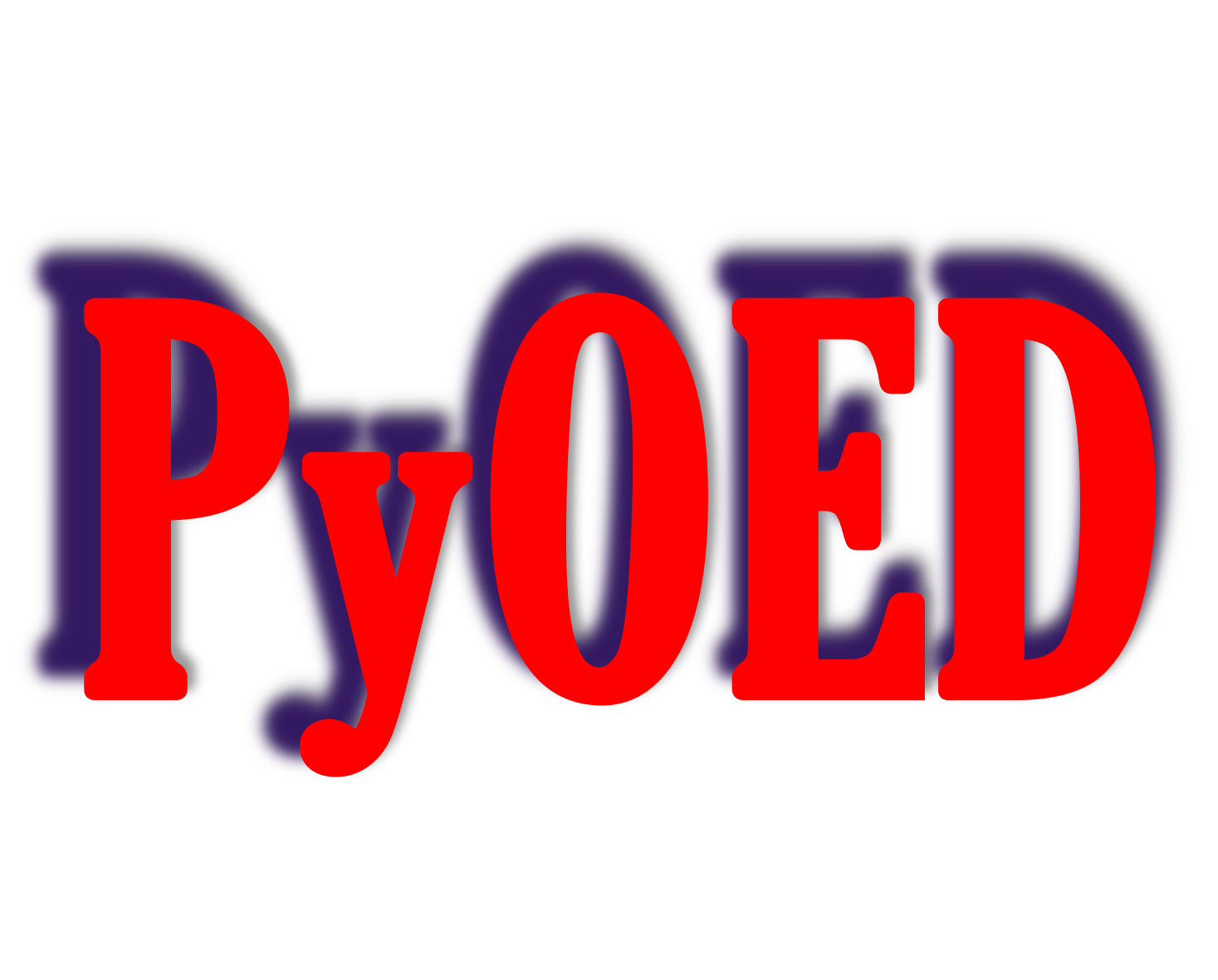FEniCS Compatable Observation Operators#
|
An observation operator that interpolates Values (DOF) over a Fenics-based Mesh onto predefined observation (cartesian) coordinates |
A wrapper around |
This module presents observation operators only tailored for Fenics/Dolfin-based simulation models The module is thus optional for the PyOED package, and is provided only as an example to enable interfacing third-party packages.
- class DolfinPointWiseConfigs(*, debug=False, verbose=False, output_dir='./_PYOED_RESULTS_', model=None, targets=None, Vh=None)[source]#
Bases:
ObservationOperatorConfigsConfiguration class for DolfinPointWise observation operator
- Parameters:
verbose (bool) – a boolean flag to control verbosity of the object.
debug (bool) – a boolean flag that enables adding extra functionlity in a debug mode
output_dir (str | Path) – the base directory where the output files will be saved.
model (SimulationModel | None) – the simulation model
targets (ndarray | None) – 2D array with shape (n, 2) elements describing coordinates of the n observation/sensor points.
Vh (FunctionSpace | None) – The finite element space of the model state.
- model: SimulationModel | None#
- targets: ndarray | None#
- Vh: FunctionSpace | None#
- __init__(*, debug=False, verbose=False, output_dir='./_PYOED_RESULTS_', model=None, targets=None, Vh=None)#
- class DolfinPointWise(configs)[source]#
Bases:
ObservationOperatorAn observation operator that interpolates Values (DOF) over a Fenics-based Mesh onto predefined observation (cartesian) coordinates
- Parameters:
configs (DolfinPointWiseConfigs | dict) – an object holding the class configurations.
- validate_configurations(configs, raise_for_invalid=True)[source]#
Check the passed configuratios and make sure they are conformable with each other, and with current configurations once combined. This guarantees that any key-value pair passed in configs can be properly used
Note
Here only the locally-defined configurations in
DolfinPointWiseConfigsare validated. Finally, super classes validators are called.- Parameters:
configs – full or partial (subset) configurations to be validated
raise_for_invalid – if True raise an error for invalid configrations type/key. Default True
- Returns:
flag indicating whether passed configurations dictionary is valid or not
- Raises:
AttributeError – if any (or a group) of the configurations does not exist in the model configurations
DolfinPointWiseConfigs.PyOEDConfigsValidationError – if the configurations are invalid and raise_for_invalid is set to True.
- is_observation_vector(observation, **kwargs)[source]#
Test whether the passed observation vector is valid or not
- apply(state, return_np=True)[source]#
Apply the observation operator to a model state, and return an observation instance
- Jacobian_T_matvec(observation, eval_at=None, return_np=True)[source]#
Evaluate and return the product of the Jacobian (tangent-linear (TLM) of the observation operator), evaluated at eval_at transposed multiplied by the passed observation.
- property shape#
A tuple holding the shape of the observation operator (observation size, model state size)
- property extended_design#
Return a vector indicating active/inactive entries (with proper replication for multiple prognostic variables) of the observation vector/range
- property design#
Get a copy of the design vector (bool representing active/inactive sensors)
- property model#
The underlying simulation model
- property Vh#
The finite element space of the model state
- property targets#
The observation targets
- create_DolfinPointWise_observation_operator(model, Vh=None, targets=None, num_obs_points=20, offset=0.1, exclude_boxes=[[(0.25, 0.15), (0.5, 0.4)], ((0.6, 0.625), (0.75, 0.85))], verbose=False)[source]#
A wrapper around
DolfinPointWise. This function create a pointwise observation operator for Dolfin-based model.- Parameters:
model – the simulation model
Vh – The finite element space of the model state.
targets – 2D array with shape (n, 2) elements describing coordinates of the n observation/sensor points. If None, a set of targets will be created using the following arguments
num_obs_points (int) – (approximate) number of observation points (sensors). This number will mostly change especially if there are buildings to avoid
offset – margin/offset to leave between boundary and extreme observation points
exclude_boxes – either None, or a list of tuples; each tuple must be a pair of tuples (xl, yl), (xu, yu) to exclude points in the box with corners set to these coordintes. This simulates buildings in the domain.
verbose (bool) – screen verbosity
- Returns:
an observation operator; an instance of
DolfinPointWise
- DolfinPointWiseObservations#
alias of
DolfinPointWise
- create_pointwise_observation_operator(model, Vh=None, targets=None, num_obs_points=20, offset=0.1, exclude_boxes=[[(0.25, 0.15), (0.5, 0.4)], ((0.6, 0.625), (0.75, 0.85))], verbose=False)#
A wrapper around
DolfinPointWise. This function create a pointwise observation operator for Dolfin-based model.- Parameters:
model – the simulation model
Vh – The finite element space of the model state.
targets – 2D array with shape (n, 2) elements describing coordinates of the n observation/sensor points. If None, a set of targets will be created using the following arguments
num_obs_points (int) – (approximate) number of observation points (sensors). This number will mostly change especially if there are buildings to avoid
offset – margin/offset to leave between boundary and extreme observation points
exclude_boxes – either None, or a list of tuples; each tuple must be a pair of tuples (xl, yl), (xu, yu) to exclude points in the box with corners set to these coordintes. This simulates buildings in the domain.
verbose (bool) – screen verbosity
- Returns:
an observation operator; an instance of
DolfinPointWise
